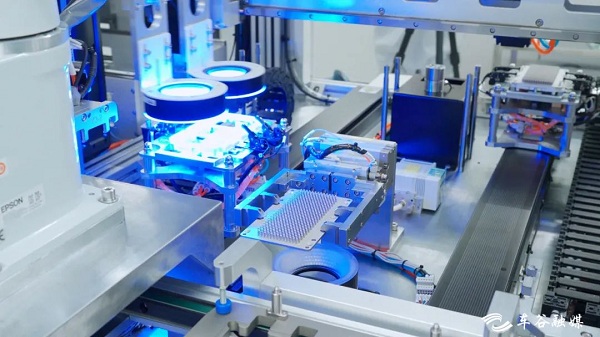

The IGBT module production line in WEDZ. [Photo provided to en.blycjd.com]
After 30 years of development, Wuhan Economic & Technological Development Zone (WEDZ) has become home to nine carmakers, 13 automobile manufacturing factories, and more than 500 long-standing auto component suppliers. Nearly one million cars are produced in the zone annually, making it one of China's most important car-manufacturing centers.
In response to the nation's strategic intelligent connected vehicle (ICV) layout, the zone has been advancing new energy vehicle (NEV) and ICV infrastructure, focusing on pilot operation, standard formulation, and technological innovation, among other things.
The ride-hailing platform Apollo Go released by China's tech giant Baidu recently began operating in WEDZ. So far, the zone has carried out six categories of ICV applications, covering 15 concrete application scenarios, such as shared transportation, bus transfers and sanitary services.
The zone is currently sponsoring innovative enterprises focusing on the R&D of IGBT modules, body control modules and sensor chips by establishing industrial funds which have directly invested nearly 13.8 billion yuan ($1.95 billion) into nearly 20 automotive projects.
In the next two to three years, the NEV output capacity of the zone is expected to increase to 50 percent or more of its total production capacity, said Liu Ziqing, secretary of the zone's working committee.